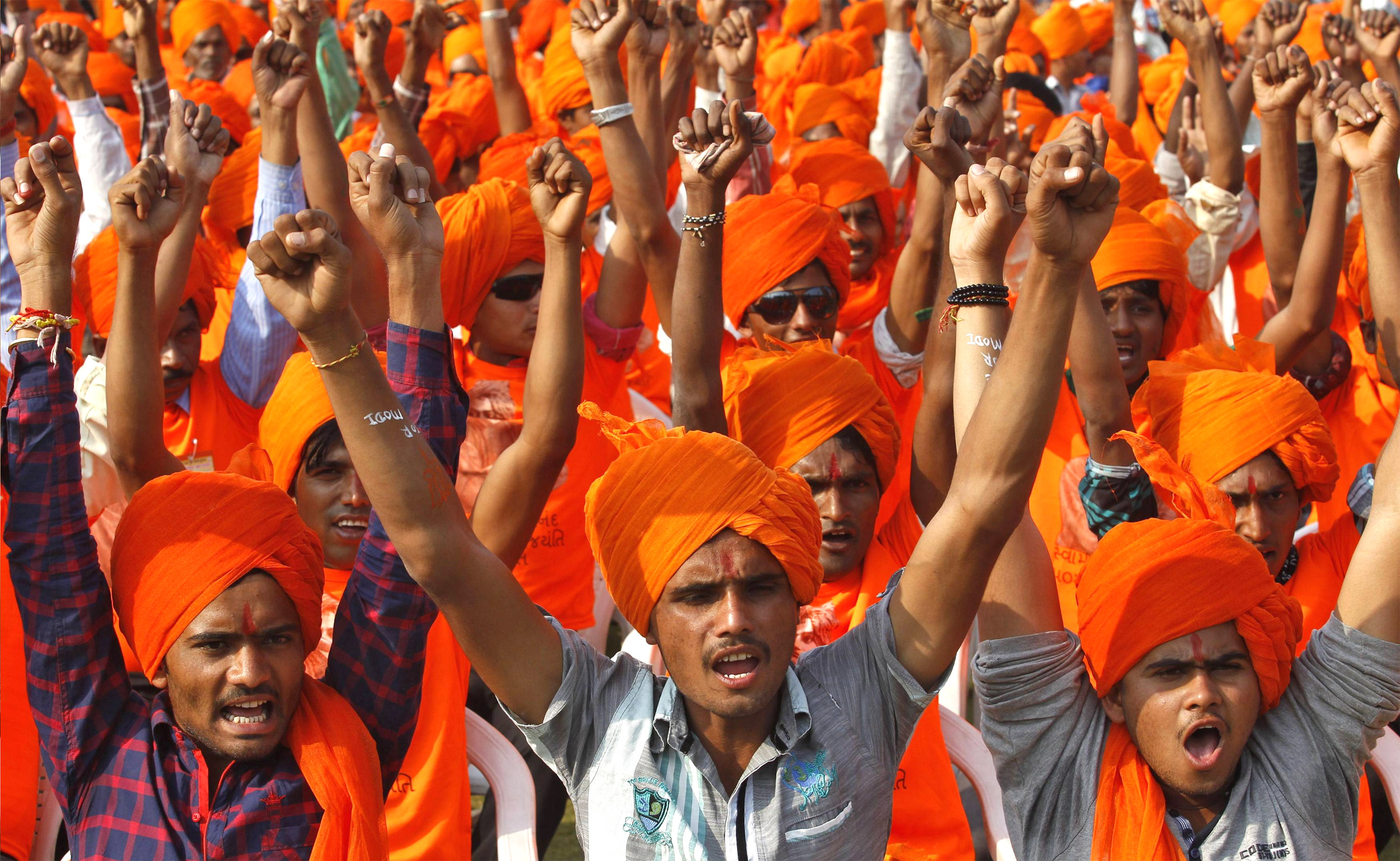Mumbai: While equating “Uniform Civil Code” with beef ban and building Ram Temple in Ayodhya, renowned feminist scholar and writer Nivedita Menon in a recently published article said the ongoing debate on the controversial issue is part of Hindu nationalist agenda and has nothing to do with gender justice as claimed.
“The talk of a “Uniform Civil Code” has nothing to do at all with gender justice. It has entirely to do with a Hindu nationalist agenda, and is right up there with the beef ban and the temple in Ayodhya”, Nivedita Menon wrote in her article published by The Hindu.
“A Uniform Civil Code is meant to discipline Muslims, teach them (if they didn’t know it already) that they are second-class citizens, and that they live at the mercy of “the national race” (the Hindus), as M.S. Golwalkar decreed”, she added.
Asserting that “Uniform Civil Code” is a “stick to beat Muslims with”, Menon acknowledge that Muslim Personal Law is modern in sense and reforms in other personal laws were made only taking hint from it.
“Muslim Personal Law is already modern in this sense, since it has since the 1930s enshrined individual rights to property, unlike Hindu law, in which the family’s natural condition is assumed to be ‘joint’.”, she wrote.
“In the decades of the 1930s and 1940s, contrary to later discourses about Muslim law being backward, it was Hindu laws that were considered “backward” and needing to be brought into the modern world of individual property rights”, she added.
Questioning the practicality of the Uniform Civil Code, Menon while noting that it would simply put together the best gender-just practices from all Personal Laws said, “A Uniform Civil Code would require the abolition of the Hindu Undivided Family, a legal institution that gives tax benefits only to Hindus, and all citizens of India would have to be governed by the largely gender-just Indian Succession Act, 1925, currently applicable only to Christians and Parsis.”
“Again, since the Muslim marriage as contract protects women better in case of divorce than the Hindu marriage as sacrament, all marriages would have to be civil contracts. Mehr, in Muslim Personal Law, paid by the husband’s family to the wife upon marriage, is the exclusive property of the wife and it is hers upon divorce, offering her a protection Hindu women do not have. So, the Uniform Civil Code would make the practice of mehr compulsory for all while abolishing dowry”, Menon, a professor at Jawaharlal Nehru University, wrote.
Stating that polygamy is not exclusive to Muslims and the practice is prevalent among Hindus as well, Menon highlighted the fact that women are more protected under the Muslim personal law than any other laws.
“Polygamy is not exclusive to Muslims. Hindu men are polygamous too, except that because polygamy is legally banned in Hindu law, subsequent wives have no legal standing and no protection under the law. Under Sharia law, on the contrary, subsequent wives have rights and husbands have obligations towards them”, she wrote in her article.
“If gender justice is the value we espouse, rather than monogamy per se, we would be thinking about how to protect “wives” in the patriarchal institution of marriage. “Wives” are produced through the institution of compulsory heterosexual marriage, the basis of which is the sexual division of labour. This institution is sustained by the productive and reproductive labour of women, and almost all women are exclusively trained to be wives alone”, she wrote.
She also questioned the necessity of any other law when the country already has Protection of Women from Domestic Violence Act, 2005 — that is available to all Indian citizens regardless of religious identity — as well as the Muslim Women (Protection of Rights on Divorce) Act, 1986, to deal with polygamy and triple talaq, and to obtain maintenance, child custody and rights to matrimonial home for countless Muslim women.
“In addition, feminist legal activists have used the landmark Shamim Ara v. State of U.P. (2002) ruling to buttress their claim that arbitrary triple talaq is invalid”, she observed.
(This article originally published on Ummid.com and reproduced here with permission. Copyrights belong to Ummid.com. Featured Imaged: Reuters).









